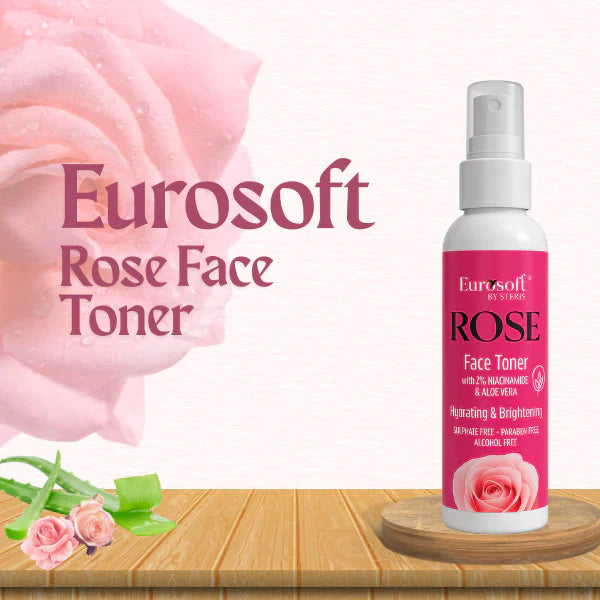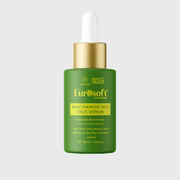Rose toners have become a staple in skincare routines across the world, thanks to their soothing properties, refreshing scent, and versatility for all skin types. Whether you are dealing with dry skin, oily skin, or acne-prone skin, incorporating a rose face toner into your skincare regimen can bring a host of benefits.

What is Rose Face Toner?
A rose face toner is a skincare product made primarily from rose water, sometimes enriched with additional ingredients like glycerin, aloe vera, or essential oils. It is designed to cleanse, hydrate, and balance the skin's pH after washing your face. Unlike harsh chemical toners, rose toners are gentle and suitable for sensitive skin.
Rose Face Toner Benefits
The benefits of using a rose toner are numerous, making it an essential part of many beauty routines. Here’s what makes rose toner so popular:
1. Hydrates and Refreshes the Skin
Rose water contains natural compounds that help retain moisture in the skin. Using a rose glow face toner or rose facial toner mist gives your skin instant hydration and a refreshed feeling.
2. Balances Skin pH
Many soaps and cleansers can disrupt the natural pH of the skin, leading to dryness or excess oil. A rose face toner spray restores the skin’s natural pH, helping prevent breakouts and irritation.
3. Soothes Skin Irritation
Rose water has anti-inflammatory properties that help calm redness, rashes, or acne-prone skin. If you are wondering, “is rosewater toner good for skin?”, the answer is yes—especially for sensitive or irritated skin.
4. Anti-Aging Properties
Rose toners are rich in antioxidants that help fight free radicals, reducing the appearance of fine lines and promoting youthful, glowing skin.
5. Minimizes Pores
Regular use of rose water facial toner uses can help tighten and minimize pores, giving your skin a smoother texture.
6. Natural Fragrance and Relaxation
The gentle aroma of rose can uplift your mood and provide a calming effect during your skincare routine.
How to Use Rose Face Toner
Knowing how to use rose toner on your face correctly is key to achieving the best results. Here’s a step-by-step guide:
-
Cleanse Your Face: Start with a gentle face wash to remove dirt, makeup, and impurities.
-
Apply the Toner: You can use a cotton pad soaked in rose water toner or a rose facial toner mist for a convenient spray application.
-
Pat Gently: Gently pat the toner into your skin to aid absorption.
-
Follow Up: After toning, apply your moisturizer or serum as usual.

Rose Face Toner Uses
The versatility of rose face toner is impressive. Some common rose skin toner uses include:
-
Refreshing your skin in the morning or after a workout.
-
Reducing redness and calming irritation caused by acne.
-
Prepping your skin before applying makeup to ensure smooth application.
-
Locking in moisture when used as a mist throughout the day.
-
Enhancing the effects of other skincare products like serums and moisturizers.
DIY Rose Face Toner Recipe
If you prefer a natural approach, you can easily make your own rose face toner recipe at home:
Ingredients:
-
1 cup of distilled water
-
½ cup of rose petals (preferably organic)
-
1 tsp of witch hazel (optional for oily skin)
-
3-4 drops of essential oil (optional, like lavender or chamomile)
Instructions:
-
Boil the rose petals in distilled water for 5-10 minutes.
-
Let it cool, then strain the petals.
-
Add witch hazel and essential oil if desired.
-
Store in a clean spray bottle and refrigerate.
Use this homemade twice daily for glowing, hydrated skin.

Side Effects of Rose Toner
Although rose toners are generally safe, some people may experience mild reactions. Possible side effects include:
-
Allergic reactions: Rarely, some may experience redness, itching, or irritation.
-
Contamination risk: DIY toners without preservatives may spoil quickly.
-
Excessive use: Overuse of toner is unnecessary and may slightly dry the skin.
Choosing the Best Rose Water Toner
When selecting a rose water toner, consider the following:
-
Look for organic, chemical-free rose water.
-
Check for additional beneficial ingredients like glycerin or aloe vera.
-
Avoid artificial fragrances or alcohol-based toners if you have sensitive skin.
-
Choose a rose facial toner mist for convenient on-the-go use.
Some commonly asked questions are:
-
Is rose water and rose toner the same? Rose water is the base ingredient, while rose toner may include additional components for enhanced benefits.
-
Which rose water toner is best? Look for high-quality, preservative-free, and organic options.

Conclusion
Incorporating a rose face toner into your skincare routine can transform your skin by hydrating, balancing, and soothing it. From daily use to DIY rose face toner recipes, the benefits are numerous—ranging from minimizing pores to enhancing your skin’s natural glow. Whether you choose a commercial rose facial toner mist or a homemade blend, proper application ensures optimal results. Remember to perform a patch test and choose the best quality toner for your skin type.
A rose toner is more than just a skincare product—it’s a gentle, natural, and effective way to nurture your skin every day.






